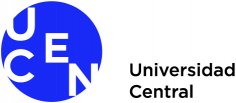Artículos en revistas indexadas
- Chouhy, Gabriel. “Explaining the Chile-Uruguay Divergence in Democratic Inclusion: Left Parties and the Political Articulation Hypothesis.” Social Science History,46(2) (2022), 401-430
- Chouhy, Gabriel. “The moral life of econometric equations: factoring class inequality into school quality valuation in Chile.” European Journal of Sociology. 62 (1) (2021): 141-182.
- Chouhy, Gabriel. “Rethinking neoliberalism, rethinking social movements”. Social Movement Studies. 19 (4) (2020): 426-446
- Chouhy, Gabriel. «Después del acontecimiento: política y subjetividad en tiempos post-neoliberales. Un análisis de la película ‘El Estudiante’”. Revista Científica de Estudios Sociales Iberoamericanos. 10 (13) (2018): 73-89
- Chouhy, Gabriel, Sebastián Aguiar, and Laura Noboa. “Las marcas de clase de la inseguridad ciudadana: juventud y pobreza. Miedo urbano y estigmas en Montevideo”. de Ciencias Sociales 25 (2009): 46-59.
- Chouhy, Gabriel. “La vida moral de los rankings escolares”. Educarnos. Administración Nacional de Educación Pública. 2 (2019): 56-61
Libros y capítulos de libro
- Chouhy, Gabriel. “A Specter Haunts the Neoliberal Globe: Reworking the Communist Hypothesis through the Chilean Student Movement”. In Tejerina, Benjamín & Ignacia Perugorría (eds.) Global Movements, National Grievances…Bilbao: Universidad del País Vasco, 2013
- Chouhy, Gabriel. “Trayectorias, posiciones y disposiciones de las personas en situación de calle: bases para la construcción de un modelo analítico”. In: El Uruguay y la Sociología VI. Department of Sociology -Universidad de la República, Montevideo, 2008.
Reseña de libros
- Chouhy, Gabriel. Book Review of “Leftism Reinvented: Western Parties from Socialism to Neoliberalism”, by Stephanie L. Mudge. States, Power, & Societies. American Sociological Association – Political Sociology Newsletter. Fall, 2019.
- Chouhy, Gabriel. Book Review of “Uruguay, 1968. Student Activism from Global Counterculture to Molotov Cocktails”, by Vania Markarian. International Sociology Reviews 32 (5) (2017): 619-622.
Felipe González
Artículos en revistas indexadas
- González, Felipe (2023) “Debt for status? Consumer credit, ordinary consumption, and the sense of place. Felipe González. Finance and Society”. Finance and Society, 2023, 9(2): 21-38.
- González, Felipe & Gómez, Matías (2022) “Información política en plataformas de redes sociales y participación electoral: evidencia desde Chile utilizando Full Matching”. Cuadernos.info. (53), 95–116. https://doi.org/10.7764/cdi.53.43025
- González, Felipe & Gómez, Matías (2022) “Brechas en el consumo de información política en Chile: televisión, prensa y plataformas de redes sociales (2011-2019).” Vol. 15 Nº1, pp. 77-109. Perspectivas de la comunicación.
- González, Felipe (2021) “Society Against Markets. The Commodification of Money and the Repudiation of Debt”. Sociología & Antropología, (11), 97-122.
- González, Felipe (2021) “The Financialisation of Social Policy and the Politicisation of Student Debt”. Journal of Cultural Economy. Vol 4, pp. 176-193.
- González, Felipe (2019) “Big data, algoritmos y política: las ciencias sociales en la era de las redes digitales”. Cinta de Moebio, Revista de Epistemología de Ciencias Sociales, (65), 267-280.
- González, F. (2019). Dominant Elites in Latin America: From Neo-Liberalism to the ‘Pink Tide’ ( London: Palgrave Macmillan, 2018 ), pp. xvii + 239. Book Review. Journal of Latin American Studies, 51(3), 718-721. https://doi.org/10.1017/S0022216X19000786
- Schrank, A., González, F., & Madariaga, A. (2019). Bringing Development Back into (Economic) Sociology: Andrew Schrank Interviewed by Felipe González and Aldo Madariaga.Economic Sociology: The European Electronic Newsletter,(3), 19-28.
- González, F., & Madariaga, A. (2019). “Economic Sociology, Political Economy, and Latin America’s Capitalism: Quo vadis?”Economic Sociology: The European Electronic Newsletter,20(3), 1-5.
- González, Felipe and Madariaga, Aldo (2018) “Markets, Market Dynamics, and Market Creation in Latin America.” Economic Sociology, the Electronic European Newsletter. Volume 20, Number 2.
- González, Felipe and Madariaga, Aldo (2018) “Is there a Latin American Economic Sociology?” Economic Sociology, the Electronic European Newsletter. Volume 20 · Number 1.
- González, Felipe (2018) “Crédito, deuda y gubernamentalidad financiera en Chile” Revista Mexicana de Sociología, Vol 80, N°4. Septiembre-Diciembre: 881-908.
- Undurraga, T., Ariztía, T., González, F., & Fridman, D. (2018) “Book Review Symposium: Freedom from Work: Embracing Financial Self-Help in the United States and Argentina.” Cultural Sociology, 0(0).
- González, Felipe y Madariaga, Aldo Eds. (2018) “La constitución social, política y moral de la economía chilena”. Ril Editores.
- González, F., & Madariaga, A. (2018). Introducción: Deseconomizar los mercados, socializar los estudios de la economía. In F. González, & A. Madariaga (Eds.), La constitución social, política y moral de la economía chilena(pp. 9-40). Santiago: RIL editores.
- González, Felipe y Montero, Andrea (2018) “¿Qué cabe esperar de una política de créditos estudiantiles?: el caso de Chile a la luz de la experiencia internacional.” En Morales, R.; Muñoz-Saavedra, J.; y Rivera-Vargas, P. Eds. “Políticas públicas para la equidad social”, Colección de Políticas Públicas de la Universidad de Santiago de Chile
- Cuevas, Hernán; González, Felipe; y Paredes, Juan Pablo (2018) “Neoliberalización y Ciudadanía(s) en el Sur Global: introducción a un debate”. Revista Polis Latinoamericana, N°49, 5-25.
- González, Felipe (2018). “Crédito y neoliberalismo”. En Sir, Hugo y Darat, Nicole, Eds. (2018) “El ABC del neoliberalismo. Tomo 2”. Editorial Communes, Capítulo 6.
- González, F. (2017). Die Mikrofundierung der Finanzialisierung: Statusangst und Konsumentenkredite in Chile. In MPI for the Study of Societies, Max Planck Society (Ed.), MPIfG Jahrbuch 2017-2018(pp. 81-86). Köln: Max-Planck-Institut für Gesellschaftsforschung.
- González, Felipe (2017) “Futuro, expectativas ficcionales y dinámicas del capitalismo en la teoría de Jens Beckert.” Papeles de Trabajo 11 (20): 59-80.
- González, Felipe (2017) ““Entrevista: incertidumbre y el orden social de los mercados: Introducción a la sociología económica de Jens Beckert” Papeles de Trabajo, 11 (20): 125-146.
- González, Felipe and Serafin, Marcin (2017) “Uncertainty and the Social Order of the Economy: Introduction to the Economic Sociology of Jens Beckert. STUDIA SOCJOLOGICZNE, Vol. 3 (226).
- González, Felipe (2017) “Privatized Keynesianism or Conspicuous Consumption? Status Anxiety and the Financialization of Consumption in Chile” MPIfG Discussion Paper 17/3.
- González, Felipe (2016) “Micro-foundations of Financialization: Status Anxiety and the Expansion of Consumer Credit in Chile” Economic Sociology, The electronic European Newsletter. Vol 17, N°2.
- González, Felipe (2016) “Los mecanismos sociales y su relación con la distinción micro-macro.” Cinta de Moebio, Santiago de Chile. 55: 16-18.
- González, Felipe (2015) “Where are the consumers? Real Households and the Financialization of Consumption” in Cultural Studies. Volume 29, Issue 5-6. Pages 781-806.
Libros y capítulos de libro
- González, Felipe (2022) “El gobierno electrónico en la República de Corea. Diez reflexiones en torno a su desarrollo exitoso”. En Kim, Soonbae (Coordinador). Gobierno electrónico parea un siglo digital. Ril Editores.
- González, Felipe (2020) “Micro-credit and the Financialization of Low-Income Households” In Mader, Phil; Mertens, Daniel and Van der Zwan, Natascha, Eds. “International Handbook of Financialization”, Routledge.
- González, Felipe y Madariaga, Aldo Eds. (2018) “La constitución social, política y moral de la economía chilena”. Ril Editores.
- González, Felipe y Montero, Andrea (2018) “¿Qué cabe esperar de una política de créditos estudiantiles?: el caso de Chile a la luz de la experiencia internacional.” En Morales, R.; Muñoz-Saavedra, J.; y Rivera-Vargas, P. Eds. “Políticas públicas para la equidad social”, Colección de Políticas Públicas de la Universidad de Santiago de Chile
- González, Felipe (2015) “Micro-foundations of Financialization: Status Anxiety and the Expansion of Consumer Credit in Chile”. PhD Thesis, Universität Köln, Köln. ISBN: 978-3-946416-09-8.
Gabriel Otero
Artículos en revistas indexadas
- Otero, G. & Mendoza, M. (2023). Class, networks and attitudes toward inequality in Chile. Sociology (UK). Online first.
- Otero, G., Ramond, Q., Méndez, M., Carranza, R., Link, F. & Ruiz-Tagle, J. (2023) The damages of stigma, the benefits of prestige: Examining the consequences of perceived residential reputations on neighbourhood attachment. Urban Studies. Online first: https://doi.org/10.1177/00420980231186141
- Otero, G., Volker, B., Rozer, J. & Mollenhorst, G. (2023) Differences in the access to social capital across societies. European Sociological Review. Online first: https://doi.org/10.1093/esr/jcad035
- Otero, G., Carranza, R. & Contreras, D. (2023) Spatial divisions of poverty and wealth: Does segregation affect educational achievement? Socio-Economic Review, 21(1), 617–641.
- Otero, G., Volker, B., Rozer, J. & Mollenhorst, G. (2022) The lives of others: Class divisions, network segregation and attachment to society in Chile. The British Journal of Sociology, 73(4), 754–785.
- Otero, G., Volker, B. & Rozer, J. (2022) Space and social capital: social contacts in a segregated city. Urban Geography, 43(10), 1638–1661.
- Otero, G., Méndez, ML. & Link, F. (2022) Symbolic Domination in the Neoliberal City: Space, Class, and Residential Stigma. Urban Geography, 43(4), 632–658.
- Otero, G., Volker, B. & Rozer, J. (2021) Open but segregated? Class divisions and the network structure of social capital in Chile. Social Forces, 100(2), 649–679.
- Briones, L., Contreras, D., Otero, G. & Soto, G. (2021) Determinants of early childhood stimulation: Evidence using panel data from Chile. Early Childhood Research Quarterly, 57, 202–214.
- Méndez, ML., Otero, G., Link, F., López-Morales, E. & Gayo, M. (2021) Neighbourhood cohesion as a form of privilege. Urban Studies, 58(8), 1691–1711.
- Méndez, M., Otero, G. & Perret, V. (2020) Inseguridad percibida en los barrios de Santiago de Chile: la importancia del bienestar subjetivo. Dados, 63(1), 1–35.
- Gubbins, V. & Otero, G. (2020) Parental involvement and low-SES children’s academic achievement in early elementary school: New evidence from Chile. Educational Studies, 46(5), 548–569.
- Gubbins, V. & Otero, G. (2020) Determinants of parental involvement in primary school: Evidence from Chile. Educational Review, 72(2), 137–156.
- Contreras, D., Otero, G., Díaz, J. & Suárez, N. (2019) Inequality in social capital in Chile: Assessing the importance of network size and contacts’ occupational prestige on status attainment. Social Networks, 58, 59–77.
- Gayo, M., Otero, G. & Méndez, M.L. (2019) Elección escolar y selección de familias: Reproducción de clase media alta en Santiago de Chile. Revista Internacional de Sociología- RIS, 77(1), 1–16.
- Méndez, M. & Otero, G. (2018) Neighbourhood conflicts, socio-spatial inequalities, and residential stigmatisation in Santiago, Chile. Cities, 74, 75–82.
- Otero, G., Carranza, R. & Contreras, D. (2017) Neighbourhood effects on children’s educational achievement in Chile: the effects of polarization and inequality. Environment and Planning A, 49(11), 2595–2618.
- Gubbins, V. & Otero, G. (2016) Effect of the Parental Involvement Style Perceived by Elementary School Students at Home on Language and Mathematics Performance in Chilean Schools. Educational Studies, 42(2), 121–136.
- Gubbins, V. & Otero, G. (2016) Chilean schools’ accountability on parent participation. Revista de Educación, 372, 9–34.
Ismael Puga
- Puga, Ismael; Moya, Cristóbal (2023). “Ideology and collective action: evidence from Chile on the mechanism of ideological inversion”. Social Forces 101(3), pp.1519-1551. DOI: https://doi.org/10.1093/sf/soac032
- Donoso, Sofía; Puga, Ismael; Gerber, Mónica; Moya, Cristóbal (2022). “Is it Worth the Risk? Grievances and protest participation in the context of COVID-19 in Chile”. Journal of Politics in Latin America 14(3). DOI: https://doi.org/10.1177/1866802X221127712
- Frei, Raimundo; Moya, Cristóbal; Castillo, Alejandro; Gerber, Mónica; Puga, Ismael (2022). “¿Qué hacer? Repertorios de acción frente a las injusticias percibidas en los lugares de trabajo en Chile”. Latin American Research Review 57(4), pp.813-830. DOI: https://doi.org/10.1017/lar.2022.51
- Puga, Ismael (2021). “Ideological inversion and the (de)legitimation of neoliberalism in Chile”. Pp. 213-230 en L. Rivera y Y. Xochitl Bada (Eds.), The Oxford Handbook of the Sociology of Latin America. Londres: Oxford University Press. https://doi.org/10.1093/oxfordhb/9780190926557.013.13
- Gerber, Mónica; Moya, Cristóbal; Orchard, Macarena; Puga, Ismael; Castillo, Alejandro (2021). “Acting collectively to confront injustice: the mediating role of the legitimacy of authorities”. Studies in Psychology 42(1), pp.76-103. https://doi.org/10.1080/02109395.2020.1857582
- Puga, Ismael; Moya, Cristóbal (2020). “El mecanismo de inversión ideológica”. Revista Internacional de Sociología 78(2), e157. https://doi.org/10.3989/ris.2020.78.2.18.164
- Puga, Ismael; Soto, Daniela (2018). “Social Capital and Women’s participation into the Labor Force: a critical analysis of the Chilean case”. Feminist Economics 24(4), pp.131-158. https://doi.org/10.1080/13545701.2018.1481990
- Puga, Ismael; Easthope, Robert (2017). The Sociological Imagination: an analysis. Londres: Macat Library – Routledge. https://www.routledge.com/An-Analysis-of-C-Wright-Millss-The-Sociological-Imagination/Puga-Easthope/p/book/9781912127092
- Puga, Ismael; Atria, Raúl; Fernández, Rodrigo; Araneda, Camilo (2017). “Proyectos de vida y oportunidades en la educación media. Nuevas demandas sociales al sistema escolar chileno”. Última Década 25(4), pp.118-153. https://doi.org/10.4067/S0718-22362017000200118
- Puga, Ismael (2017). “Movilidad social y legitimación de la desigualdad en la Ciudad de México”. Pp. 297-330 en Solís (Ed.), Desigualdad, movilidad social y curso de vida en la Ciudad de México. El Colegio de México: México.
- Puga, Ismael (2016). “The Stranger the Better: Support and Solidarity in the 2011 Students’ Protests in Chile”. Social Movement Studies 15(3), pp. 263-276. https://doi.org/10.1080/14742837.2015.1070337
- Puga, Ismael; Polanco, Diego; Corvalán, Diego (2015). “Segregación de la formación y carrera docente y su rol en la reproducción social de la desigualdad”. Calidad en la educación 43, pp.57-102. https://doi.org/10.4067/S0718-45652015000200003
- Puga, Ismael (2015). “¿Teoría social latinoamericana o desde América Latina? Para una sociología de la modernidad realmente existente”. Cuadernos de Teoría Social 1, pp.33-49.
- https://cuadernosdeteoriasocial.udp.cl/index.php/tsocial/article/view/7
- Zapata, Martha; Cuenca, Andrea; Puga, Ismael (2014). Guía Desde Un Enfoque Interseccional – Metodología para el Diseño y Aplicación de Indicadores de Inclusión Social y Equidad en Instituciones de Educación Superior de América Latina. MISEAL / Freie Universität Berlin: Berlín.
- Puga, Ismael (2011). “Lo Justo y lo Posible: Desigualdad, Legitimidad e Ideología en Chile”. Pp. 139-160 en Castillo, Bastías y Durand (Comps.), Desigualdad, legitimación y conflicto: dimensiones políticas y culturales de la desigualdad en América Latina. UAH: Santiago.
- Puga, Ismael (2011). “Escuela y estratificación social en Chile. ¿Cuál es el rol de la municipalización y la educación particular subvencionada en la reproducción de la desigualdad social?” Estudios Pedagógicos 37(2), pp. 213–232. https://doi.org/10.4067/S0718-07052011000200013
- Solís, Patricio; Puga, Ismael (2011): “Efectos del nivel socioeconómico de la zona de residencia sobre el proceso de estratificación social en Monterrey”. Estudios Demográficos y Urbanos XXVI 77(2), pp. 233-265. https://doi.org/10.24201/edu.v26i2.1383
- Castillo, Patricia; González, Alejandra; Puga, Ismael (2011). “Gestión y efectividad en educación: evidencias comparativas entre establecimientos municipales y particulares subvencionados”. Estudios Pedagógicos 37(1), pp. 187–206. https://doi.org/10.4067/S0718-07052011000100010
- Puga, Ismael; Solís, Patricio (2010). “Estratificación y Transmisión de la Desigualdad en Chile y México: Un estudio empírico en perspectiva comparada”. Pp. 189-228 en Serrano & Torche (Eds.), Movilidad Social en México. CEEY: México.
- Solís, Patricio; Puga, Ismael (2009). “Los nuevos senderos de la nupcialidad: cambios en los patrones de formación y disolución de las primeras uniones en México”. Pp. 179-198 en Rabell (Coord.), Tramas familiares en el México contemporáneo. UNAM / El Colegio de México: México.
Héctor Ríos
- Rios-Jara, H. (2023). The free education policy in Chile: Between transforming and maintaining neoliberalism. South African Journal of Higher Education, 37(6), 112-130. https://www.journals.ac.za/sajhe/article/view/6002
- Cini, L., & Ríos-Jara, H. (2023). Contemporary Student Movements and Capitalism. A Marxist Debate. In The Palgrave International Handbook of Marxism and Education (pp. 413-428). Cham: Springer International Publishing.
- Rios-Jara, H. (2023). Chapter 14. Between protests and policy. The student voice in the higher education reforms of England and Chile. In Conner, J., Raaper, R., Guzmán-Valenzuela, C. & Gauthier, L. (2023). Bloomsbury Handbook of Student Voice in Higher Education. https://link.springer.com/chapter/10.1007/978-3-031-37252-0_22
- Rios-Jara, H. (2023). Intelectuales en movimiento. ¿Hacia un nuevo pensamiento sociológico desde Chile para Latinoamérica? Utopía y práxis Latinoamericana 28 (101), 1-12 Disponible en: https://produccioncientificaluz.org/index.php/utopia/article/view/e7768905/45174
- Rios-Jara, H. (2022). Between Movements and the Party: Corbynism and the Limits of Left-Wing Populism in the UK. In A. Eder-Ramsauer, S. Kim, A. Knott and M. Prentoulis. “Populism, Protest, New Forms of Political Organisation”, Nomos. 2: 130-149.
- Ríos-Jara, H. (2022). La visión del neoliberalismo de Wolfang Streeck y su alcance en Latinoamérica: asincronismos, paradojas y convergencias. En: Torres, E. & Leite Gonçalves, G. Hacia una nueva sociología del capitalismo. Buenos Aires: CLACSO- Friedrich-Schiller-Universität Jena. Disponible en: https://www.clacso.org/en/hacia-una-nueva-sociologia-del-capitalismo/
- Ríos-Jara, H. (2022). El estado neoliberal en la pandemia. Intervencionismo y distopía. En: Torres & Domingues [Eds]. Nuevos actores y cambio social en América Latina. Buenos Aires: CLACSO. Disponible en: https://www.clacso.org/en/nuevos-actores-y-cambio-social-en-america-latina/
Rios-Jara, H. (2021). From Revolt to Reform: Student Protests and the Higher Education Agenda in England 2009–2019. Student Movements in Late Neoliberalism, Springer: 213-239. https://link.springer.com/chapter/10.1007/978-3-030-75754-0_9 - Guzmán-Valenzuela, C., Queupil, J. P., & Ríos-Jara, H. (2021). Global and peripheral identities in the production of knowledge on higher education reforms: the Latin American case. Higher Education Policy, 34(2), 321-343. https://link.springer.com/article/10.1057/s41307-019-00134-4
- Ríos-Jara, H. (2019). Cooperation and competition in the wave of British student protests 2009-2011. Interface: A Journal on Social Movements 11(2): 63-90. https://www.interfacejournal.net/interface-volume-11-issue-2/
- Ríos-Jara, H. (2018). Austeridad, capitalismo y conflicto social. Nuevas tendencias en el estudio de los movimientos sociales. Entrevista a Donatella Della Porta. Serie Documentos de Trabajo COES, Documento de trabajo N°30, pp. 1-15. Disponible en: http://www.coes.cl/publicaciones/entrevista-a-donatella-della-porta/
- Mella, Marcelo; Rios, Hector; Rivera, Ricardo (2016) “Condiciones orgánicas y correlaciones de fuerza del movimiento estudiantil chileno. Una aproximación desde la CONFECH 2011-2015. Revista Izquierda. http://www.izquierdas.cl/images/pdf/2016/n27/6.Mella.y.otros.pdf
Valeria Scapini
Artículo en revistas indexadas
- Scapini, Torres & Torrealba. (2023). Meteorological, PM2.5 and PM10 factors on SARS-COV-2 transmission: The case of southern regions in Chile. Environmental Pollution. Volume 322. https://doi.org/10.1016/j.envpol.2022.120961
- Herrera, Rojo & Scapini. (2022). Relationship between pollution levels and poverty: regions of Antofagasta, Valparaiso and Biobio, Chile. International Journal of Energy Production and Management. 2022. Vol. 7. Iss. 2, 7(2), 176-184.
- Scapini & Berrios (2022). Climate Change in Chile, Strategic Plan and Circular Economy. International Journal of Environmental Impacts. Volume 5 Número 4. p.306–315. DOI: 10.2495/EIV5-N4-306-315
- Scapini & Vergara (2021) Natural Disasters and Birth Rate: Evidence from the 2010 Chilean Earthquake. Journal of Population and Social Studies (JPSS) Online ISSN: 2465-4418. Volume 29, 2021. p.274-285. http://doi.org/10.25133/JPSSv292021.017
- Scapini & Berrios (2021). Circular economy in Chile: Background, law and opportunities. WIT Transactions on Ecology and the Environment. Volume 253, 2021. p.185-194. DOI:10.2495/SC210161
- Herrera, Rojo & Scapini (2021). Relationship between pollution levels and socioeconomic variables: The situation of 9 municipalities in the Valparaíso Region, Chile. WIT Transactions on Ecology and the Environment. Volume 252, 2021. p.231-238. DOI: 10.2495/AIR210211
- Scapini & Vergara (2021). Social crisis, protests and effects on public emergency services: Econometric analysis of the Chilean social outbreak. WIT Transactions on The Built Environment. Volume 207, 2021. p.101-108. DOI: 10.2495/DMAN210081
- Scapini, V. (2020). Disaster, infrastructure damage and health. International Journal of Safety and Security Engineering, 10 (2), 219-225. https://doi.org/10.18280/ijsse.100208
- Vergara, Scapini, Maturana & Paz (2019). Análisis de texto para Gestión de marca con el uso de Instagram aplicado a una comunidad de mascotas en Chile. Revista Ingeniería de Sistemas,p.81-99. http://www.dii.uchile.cl/ris/tabla.php
- Scapini, Carrasco, & Vergara (2018). Efectos de la contaminación del aire en atenciones de urgencia de la Región Metropolitana. Revista Ingeniería de Sistemas, p.55-73. http://www.dii.uchile.cl/ris/tabla.php
- Scapini y Vergara (2018). El impacto de la nueva ley de etiquetados de alimentos en la venta de productos en Chile. Revista Perfiles Económicos, (3). p.7-33. https://doi.org/10.22370/rpe.2017.3.121.
- Scapini & Vergara (2017). Políticas de desincentivo en el consumo de alcohol y efecto en los accidentes de tránsito. Revista Ingeniería de Sistemas, p.47-63.
- Scapini & Zúñiga (2020) A Markov chain approach to model reconstruction. International Journal of Computational Methods and Experimental Measurements. Volume 8 (2020), Issue 4. p316-325. https://doi.org/10.2495/CMEM-V8-N4-316-325
- Scapini & Zúñiga (2020). Conditions of housing infrastructure before the occurrence of an earthquake. WIT Transactions on Engineering Sciences, 129, 207-213. https://doi.org/10.2495/RISK200181. Valeria Scapini Octubre, 2023 1/4
Libro y capítulos de libro
- Scapini & Vergara (2023) Book chapter: Earthquake Ground Motion. Chapter name: Disasters and housing infrastructure: Evidence from the 2010 chilean earthquake. IntechOpen. ISBN 978-0-85466-221-0. DOI: 10.5772/intechopen.1003006.
• Scapini, Vergara & Sepúlveda (2020) Book chapter: Innovación: Perspectivas multidisciplinarias. Chapter name: Comercio electrónico en Chile: análisis de factores de adopción en pymes.
Ril editores, ISBN 978-956-01-0859-3.
Documentos de Trabajo
- Pollution in the Valparaíso Region. Newsletter N°1, with José Rojo Brito. https://cidep.uv.cl/attachments/article/19/Boletín1Contaminacióncidep.pdf
- Pollution in the Valparaíso Region. Newsletter N°2, with José Rojo Brito. https://cidep.uv.cl/attachments/article/19/Boletín2Contaminacióncidep.pdf
- Pollution in the Valparaíso Region. Newsletter N°3, with José Rojo Brito. https://cidep.uv.cl/attachments/article/19/Boletín3Contaminacióncidep.pdf
Ignacio Schiappacasse
Artículos en revistas indexadas
- Schiappacasse, I. 2021. Continuidad del sistema de AFP en democracia: el rol del poder de la elite económica. Revista Chilena de Derecho y Ciencia Política 12(1): 9-53.
- Schiappacasse, I. 2020. Business power in post-authoritarian Chile: explaining regulatory continuity in the pension system, 1990-1994. Revista Española de Sociología 29: 503-521.
- Youlton, C., C. Hormazábal, I. Schiappacasse, P. Contreras & C. Poblete-Echeverría. 2016. Distribución, tamaño y estructura poblacional de Jubaea chilensis en “Las Palmas”, comuna de Petorca, región de Valparaíso – Chile. Bosque 37: 501- 507.
- Barrena, J., L. Nahuelhual, A. Báez, I. Schiappacasse & C. Cerda. 2014. Valuing cultural ecosystem services: agricultural heritage in Chiloé island, southern Chile. Ecosystem services 7: 66-75.
- Atwater, B., M. Cisternas, E. Yulianto, A. Prendergast, K. Jankaew, A. Eipert, W. Fernando, I. Tejakusuma, I. Schiappacasse & Y. Sawai. 2013. Andean Geology 40: 393-418.
- Schiappacasse, I., F. Vásquez, L. Nahuelhual & C. Echeverría. 2013. Labor as a welfare measure in contingent valuation: the value of a forest restoration project. Latin American Journal of Agricultural Science and Environment 40: 69-84.
- Schiappacasse, I., L. Nahuelhual, F. Vásquez & C. Echeverría. 2012. Valuing the benefits of dryland forest restoration in central Chile. Journal of Environmental Management 97: 38-45.
- Birch, J.C., A. Newton, C. Aquino, E. Cantarello, C. Echeverría, T. Kitzberger, I. Schiappacasse, & N. Garavito. 2010. Cost-effectiveness of dryland forest restoration evaluated by spatial analysis of ecosystem services. Proceedings of the National Academic of Sciences 107: 21925–21930.
Libros y capítulos de libro
- Tromben, C. & I. Schiappacasse. 2022. Todo Legal: Los grandes zarpazos de la elite financiera chilena, 1973-2021. Editorial Planeta. Santiago, Chile. Está próxima a salir la cuarta edición.
Diego Velásquez
Artículos
- Velásquez, Diego y Ayala, Jorge (2023) Production of nature and labour agency. How the subsumption of nature affects trade union action in the fishery and aquaculture sectors in Aysén, Chile. Environment and Planning: Nature and Society. pp.1-21 [Online-first]
- Velásquez, Diego y Retamal, Patricia (2023). Régimen laboral, sindicalismo y reproducción social. Cómo los sindicatos articulan el espacio productivo y reproductivo en la salmonicultura chilena. Revista Páginas, 15(39)
- Velásquez, Diego, Fernández-Marín, Ana y Contreras, Fernando (2022). Análisis conceptual del Diálogo Social. Hacia una definición operacionalizable. Trabajo y Sociedad. 23(39), pp. 555-570.
- Medel, Rodrigo, Velásquez, Diego y Pérez, Domingo. (2023). Politization in Labor Conflict: Analyzing the Demands of Post-Authoritarian Chilean Strikes. Critical Sociology. 49(1), pp. 77-96.
- Velásquez Orellana, Diego., Pérez, Domingo., y Link, Sebastián. (2021). What tactical repertoire to use in strikes and when to use it? Strategies of workers and their mobilization power in Chile (2010–2018). British Journal of Industrial Relations.
- Osorio, Sebastián y Velásquez, Diego (2022). El poder sindical en el “Estallido social” chileno. La huelga general de noviembre de 2019. Revista Española de Sociología. 31(1), 1-21.
- Velásquez, Diego y Somma, Nicolás. (2021). ¿Cuándo reprime la policia a los trabajadores? Acción policial en las huelgas en Chile (2010-2015). Revista Mexicana de Ciencias Políticas y Sociales. 66 (241), pp. 281-315. http://revistas.unam.mx/index.php/rmcpys/article/view/68277
- Velásquez, Diego (2020). Resistencia laboral en la Gran Minería del Cobre en Chile 1955-1966. Un análisis relacional del territorio. Izquierdas. 49, pp. 3150-3167. http://www.izquierdas.cl/images/pdf/2020/n49/art149_3150_3167.pdf
Capítulos de libros
- González, M. J.; Cifuentes, L. y Velásquez, D. (2024) Reflexiones finales en torno a las experiencias particulares latinoamericanas revisadas y el contexto global de la región. En González, M. J.; Cifuentes, L. y Velásquez, D. (Eds)Nuevas respuestas a viejos desafíos en América Latina y el Caribe: un análisis comparativo de las políticas públicas de protección social y mercado laboral en el contexto de la emergencia sanitaria. IV Informe Regional del Sistema FLACSO.
- Velásquez, Diego (2020) “Industrial Agglomeration and Union Resources Mobilisation: A Comparison Between Antofagasta Enclave and Los Lagos Cluster, Chile”. En Hammer, Anita y Finchwick, Adam (Eds.), The Political Economy of Work in the Global South. Red Globe Press.
- Pérez, Domingo, Medel, Rodrigo, & Velásquez, Diego. (2017). Radiografía de las huelgas laborales en el Chile del neoliberalismo democrático (1990-2015): masividad del conflicto por fuera de la ley en un sindicalismo desbalanceado. En Ponce, J., Santibánez, C. & Pinto, J. (Eds.), Trabajadores y Trabajadoras. Procesos y acción sindical en el neoliberalismo en Chile (1979-2017). Valparaíso: Editorial América en Movimiento.
- Medel, Rodrigo, Pérez, Domingo, Velásquez, Diego, & Morales, Gabriela (2017). Huelgas con adjetivo: hacia una diferenciación conceptual de la nueva estructura de conflictividad laboral. En D. Pérez, O. Aguilar, & H. Henríquez (Eds.), Conciencia y Paralización, la centralidad de las huelgas Laborales. Santiago: Editorial Universitaria.
Gabriela Zapata
Artículos en revistas indexadas
- Burchi, Francesco; Zapata-Román, Gabriela (2022). Inequality and social cohesion in Africa: Theoretical insights and an exploratory empirical investigation. IDOS Discussion Paper, No. 16/2022. ISBN 978-3-96021-195-2. German Institute of Development and Sustainability (IDOS), Bonn. https://doi.org/10.23661/idp16.2022 (EconStore, RePEc).
- Zapata-Román, Gabriela. (2021) The role of skills and tasks in changing employment trends and income inequality in Chile. WIDER Working Paper 2021/48. Helsinki: UNU-WIDER. https://doi.org/10.35188/UNU-WIDER/2021/986-0 (EconStore, RePEc).
- Gaentzsch, Anja; Zapata-Román, Gabriela (2020). Climbing the ladder: Determinants of access to and returns from higher education in Chile and Peru, UNRISD. Working Paper, No. 2020-2, United Nations Research Institute for Social Development (UNRISD), Geneva (EconStore, RePEc).
- Solimano, Andrés; Zapata-Román, Gabriela (2019). Structural transformations and the lack of inclusive growth: The case of Chile, WIDER Working Paper, No. 2019/118, ISBN 978-92-9256-754-5, The United Nations University World Institute for Development Economics Research (UNU-WIDER), Helsinki, https://doi.org/10.35188/UNU-WIDER/2019/754-5 (EconStore, RePEc).
- Anja Gaentzsch and Gabriela Zapata Román (2018). More educated, less mobile? Diverging trends in income and educational mobility in Chile and Peru. Journal of Income Distribution, Vol 27 No 3-4, 66-105. https://doi.org/10.25071/1874-6322.40427(WoS, EconLit, EconStore, RePEc).
Libro y capítulos de libro
- Gabriela Zapata-Román (2023). The role of skills and tasks in changing employment trends and income inequality in Chile. In: The Changing Nature of Work and Inequality: A view from the Global South. Edited by Carlos Gradín, Piotr Lewandowski, Simone Schotte, and Kunal Sen. Oxford University Press.
- Sanhueza, Claudia, Telias, Amanda y Zapata-Román, Gabriela (2023). Políticas sociales para un nuevo modelo de desarrollo en Economía, Ecología y Democracia: Hacia Un Nuevo Modelo De Desarrollo. Editores: Aldo Madariaga y Felipe Correa. Editorial Catalonia. ISBN: 9789564150079
- Andrés Solimano and Gabriela Zapata-Román (2022). Structural Transformations and the Lack of Inclusive Growth. The Case of Chile. In: The Developer’s Dilemma. Edited by Armida Salsiah Alisjahbana, Kunal Sen, Andy Sumner, and Arief Anshory Yusuf, Oxford University Press. https://doi-org.manchester.idm.oclc.org/10.1093/oso/9780192855299.001.0001.
- Andrés Solimano and Gabriela Zapata-Román (2024). Chilean Economic Development under Neoliberalism: Structural Transformation, High Inequality and Environmental Fragility. Series: Elements in Development Economics. Online ISBN: 978100947735. Cambridge University Press. Expected online publication date: 11 January 2024.
- Jill Rubery, Gabriela Zapata Román and Matthew Johnson (2017). Chapter 2: Human Development Indices for Greater Manchester. Human Development Report for Greater Manchester: Human Development across the Life Course. European Work & Employment Research Centre – Alliance Manchester Business School.




